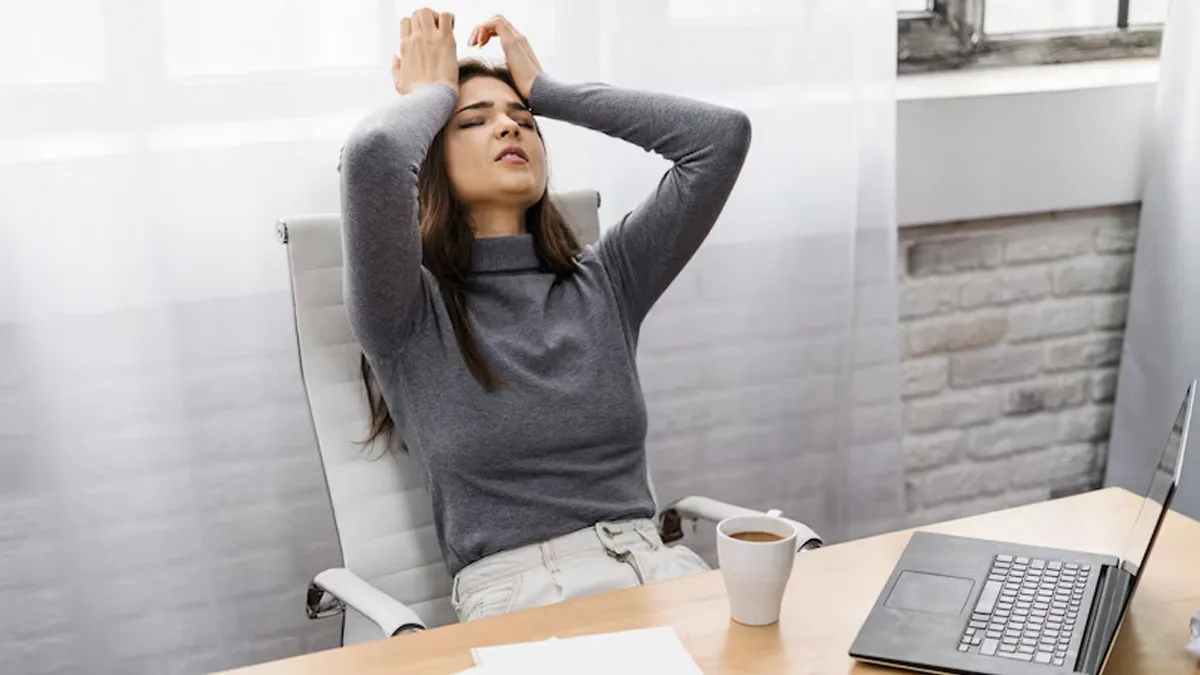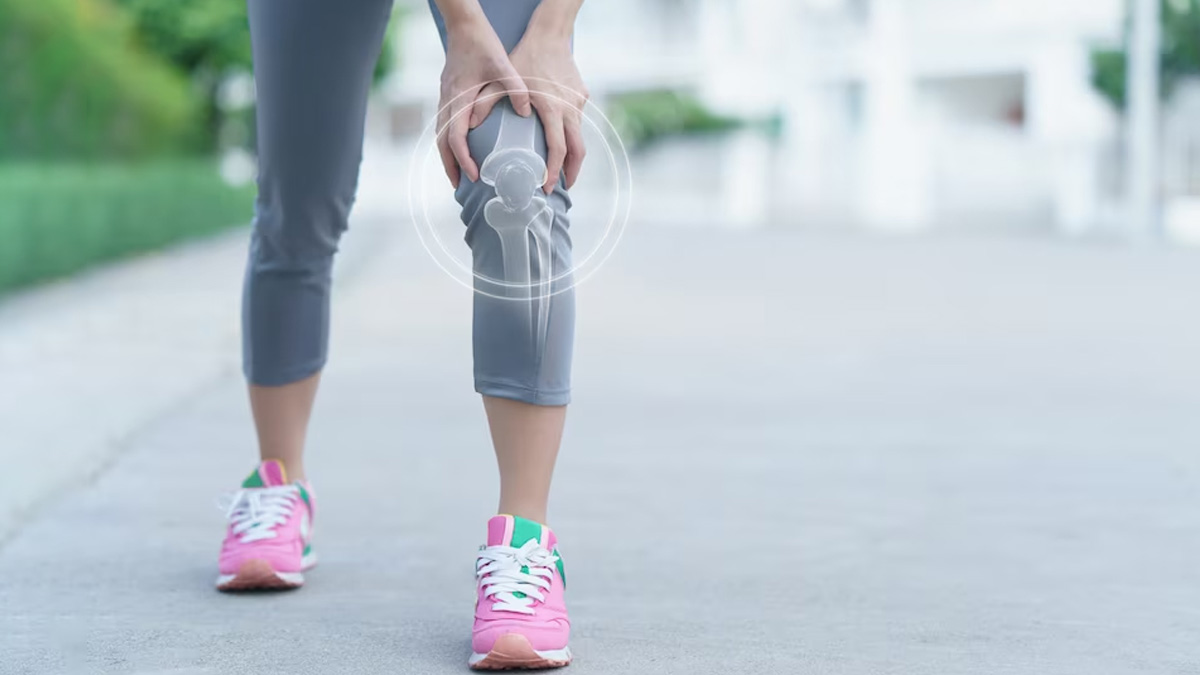
Most women identify stress as the suspect for headaches, fatigue, mood swings, or poor sleep. However, stress can also silently weaken your bone health According to studies also, chronic stress doesn't just impact your mind, it can also weaken bones, raising long-term risks of osteoporosis.
Table of Content:-
To understand the link better the editorial team of Onlymyhealth reached out to Dr Anand Chavan, Senior Consultant, Orthopaedics, Fortis Hospital, Cunningham Road, Bengaluru, and here is everything he everything he shared with us.
How Stress Affects Your Bones
When our body experiences stress, whether emotional, mental, or physical, it releases a hormone called cortisol. While cortisol is needed in small quantities, under conditions of chronic stress, the amount produced is continuously increased.
Dr Chavan explained that when excess cortisol interferes with the bone-building cells, called osteoblasts, it enhances the activity of the cells that break down bone, known as osteoclasts. “Over time, that imbalance can lead to weaker, less dense bones,” he said.
Women, in particular, are more susceptible because of hormonal changes. "Stress often worsens before or at the time of menstruation, after childbirth, and especially during menopause," Dr Chavan shared. Since oestrogen already declines with age, and it is crucial for maintaining bone density, stress becomes an added burden that silently compounds the natural loss of bone mass.
Also Read: Subtle Signs Your Child Is Struggling Emotionally and How to Address Them Early

Lifestyle Factors That Increase Stress-Related Bone Loss
Stress rarely comes alone. It often brings habits and behaviours along that damage bone health indirectly. These include:
1. Poor Diet Choices
Many women turn to comfort foods during high-stress periods. These may include high sugar, low nutrient snacks can create inflammation and reduce calcium absorption. The stress response also sets off digestive problems that affect the body's ability to absorb vitamins like D and B12.
2. Sedentary Lifestyle
Exercise is a natural stress reliever, but it's usually the first thing women give up when they feel overwhelmed. Reduced movement means less bone stimulation, thus weakening the skeletal system over time.
3. Sleep Disturbances
Chronic stress disrupts the sleep-wake cycle, and poor sleep negatively affects bone formation. Studies have shown that deep sleep is critical to cell repair, including bone cells.
4. Hormonal Imbalance
From PMS to PCOS and perimenopause, many women often have to balance their hormonal shifts. Stress leads to imbalances, which in turn accelerates bone density loss.
Signs Your Bones May Be Affected By Stress
Dr Chavan noted that it is often referred to as the silent thief, but there are some subtle signs that might occur in women. These may include:
- Frequent body aches or joint stiffness
- Increased fatigue, particularly after mild physical exertion
- Poor posture or a noticeable hunch
- Brittle nails and hair fall
- Recurring vitamin D deficiency
- Unexplained back pain
While these signs don't confirm bone loss, Dr Chavan advised women to take them seriously and seek medical evaluation if symptoms persist.
Also Read: Worrying Why You Acne Wont Go Away? Expert Shares 6 Reasons

How Women Can Protect Their Bones Despite Chronic Stress
Dr Chavan highlighted that one can strengthen their bones and manage stress with just a few intentional changes, including:
1. Prioritise Calcium and Vitamin D
Include dairy products, leafy greens, sesame, almonds, fortified cereals, and sunlight exposure. Women from age 20 to 40 years have a requirement for at least 1000 mg calcium/day, while post-menopausal women require about 1200 mg/day.
2. Move Consistently
Weight-bearing activities like brisk walking, jogging, dancing, stair climbing, and strength training, directly stimulate bone formation. “As little as 30 minutes a day can produce noticeable benefits,” he said.
3. Manage Stress Mindfully
It incorporates yoga, meditation, journalling, breathwork, and therapy that help to lower cortisol levels. Even a 10-minute daily routine helps in calming the nervous system and protects long-term bone health.
4. Regularly Check your Bone Health
For women above 40 or younger ones who may experience chronic stress, hormonal imbalance, PCOS, or thyroid problems, a DEXA scan is important to test for bone density. So, regularly check your bone health.
5. Improve Sleep Hygiene
Target seven to eight hours of undisturbed sleep. Keep your phone away at night, turn down the lights, and go to bed consistently.
Bottomline
More than mood or energy, stress is silently affecting women's bone health. Therefore, understanding this hidden link and taking proactive steps early can help women protect their bones from increased osteoporosis risk in later years.
FAQ
1. Does stress develop osteoporosis in women independently?
Not on its own, but chronic stress significantly raises the risk by heightening cortisol levels and weakening bone-building activity.2. How can I tell if stress is impacting my bones?
Early signs of bone loss include symptoms like fatigue, back pain, poor posture, or frequent deficiencies. Bone density can be confirmed by DEXA scan.3. Which exercises help reduce stress and improve bone health?
Exercises like walking, stair climbing, resistance training, and yoga are perfect for both relieving stress and maintaining bone strength.
How we keep this article up to date:
We work with experts and keep a close eye on the latest in health and wellness. Whenever there is a new research or helpful information, we update our articles with accurate and useful advice.
Current Version
Nov 21, 2025 12:24 IST
Published By : Tanya Srivastava